Merida Reacto Team-E review
Does the newly launched 4th edition improve on the existing aero focussed race bike?
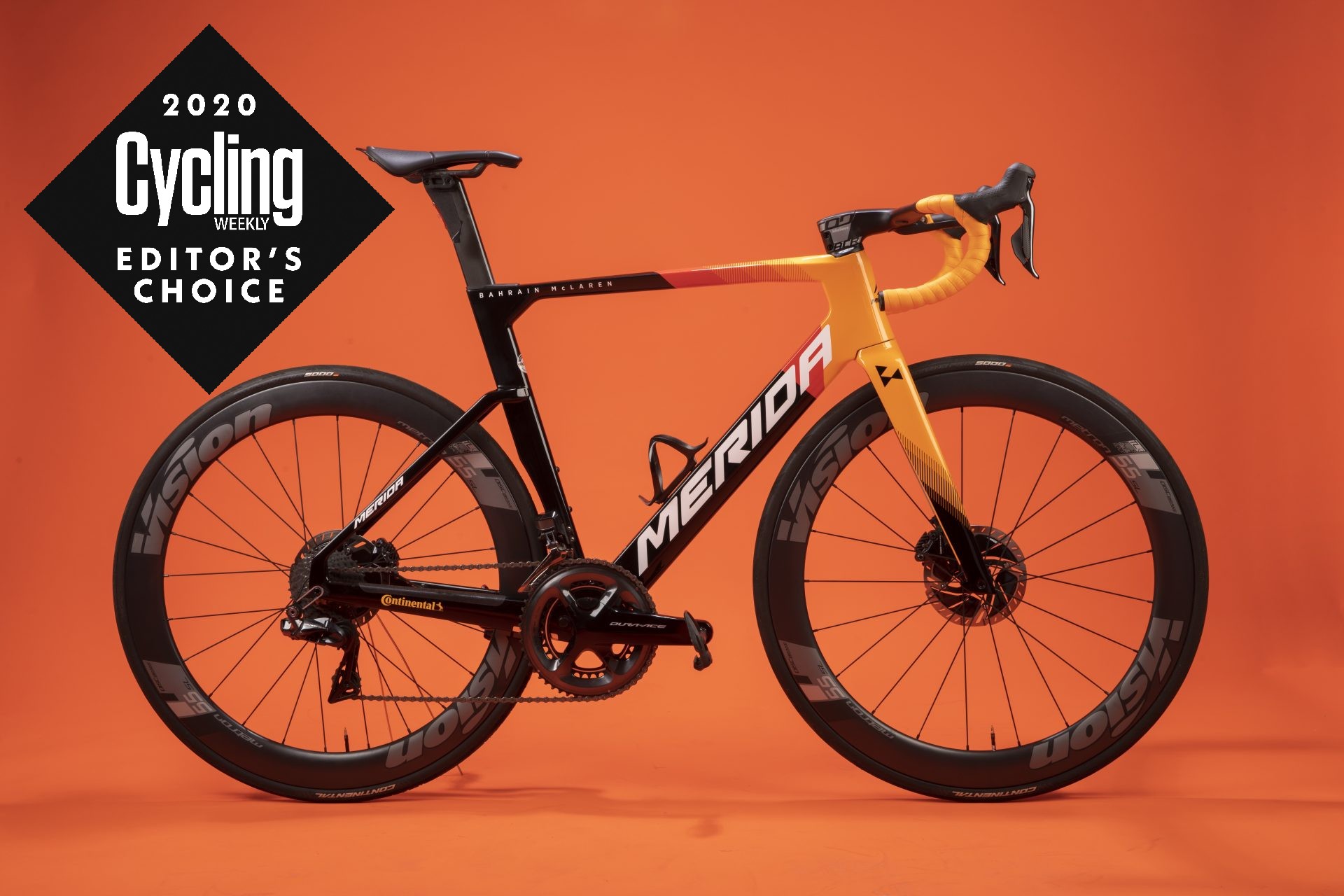
Without doubt one of the most complete bikes available on the market. Speed, comfort, handling and style are all second to none within the aero-bike category. If you want to win races or just be the fastest out of your mates, this is the bike to get.
-
+
Translates every watt into forward momentum
-
+
Razor sharp handling
-
+
Impressive comfort for an aero bike
-
-
Seat clamp rubber cap keeps sliding up the seatpost
You can trust Cycling Weekly.
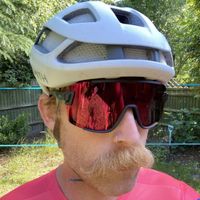
The Merida Reacto Team-E was selected for an Editor's Choice award in 2020. This year's list contains 78 items which scored a 9 or 10/10 with our tech team - this gear is the best of the best, and has received the Cycling Weekly stamp of approval.
Merida’s new Reacto is the fourth generation of its venerable aerodynamic race bike. But rather than undergoing a complete redesign this version has been refined to within an inch of its life.
Normally when releasing a new version of a bike designed to cheat the wind a brand will boast at length about the enhanced drag reduction figures that are normally associated within this field, often with comparisons with other bikes and of course claiming that this is ‘the fastest bike on the market’.
Merida however has transcended the usual process and despite the Reacto still being the fastest option in its road division this fourth edition is all about wrapping those existing aero advantages into an all-round package, one that not only delivers the expected speed but provides the comfort levels normally associated with endurance machines.
I was lucky enough to be sent the top of the line Team-E model, resplendent in Team Bahrain McLaren colours for the launch of the new Reacto and have now managed to put a couple hundred miles into it and even before we delve into the details I can tell you that Merida has a fight getting this thing back off me when they do inevitably ask for it back.
The frame
As mentioned above, the Reacto's frame has undergone some small changes but in the whole these have been quite significant. It retains a similar outline to the existing Reacto yet looks cleaner and more refined.
The latest race content, interviews, features, reviews and expert buying guides, direct to your inbox!
Which Merida road bike is right for you?
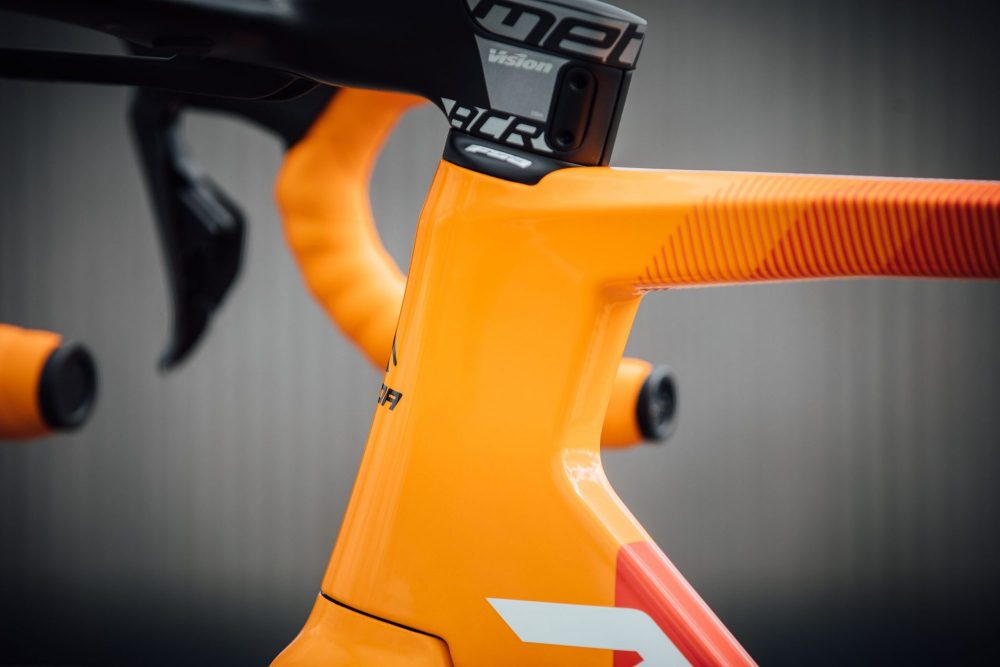
Of course there are still improved aero claims with the new Reacto, thanks to refinements in the frame design. The cockpit and front end of the bike feature complete cable integration – look carefully and you still won’t see anything, just a super clean interface between bar, stem and frame. According to Merida, this integration offers a 2 watt saving over the existing version – per cable. There’s also a new fork design that integrates even more closely to the frame, again bringing a 2 watt saving. All savings were measured in a virtual wind tunnel at 45km/h.
The frame utilises the same grade carbon and similar layup as the old top-level Reacto but has lost some of the lumps and bumps in favour of a lighter overall weight.
Merida Scultura Disc 7000-E review
Of the most obvious frame changes, the new Reacto features a much lower seatstay arrangement, now starting further down the seat tube. The shape and angle of the junction between seatstay and chainstay has also seen big changes to bring a degree more compliance into the rear triangle, despite the stays maintaining a truncated airfoil/NACA shape.
Additional features such as a concealed seatpost clamp, flush thru-axles and new versions of Merida’s unique disc brake cooling fins all further contribute towards reducing the overall drag of the Reacto Team-E.
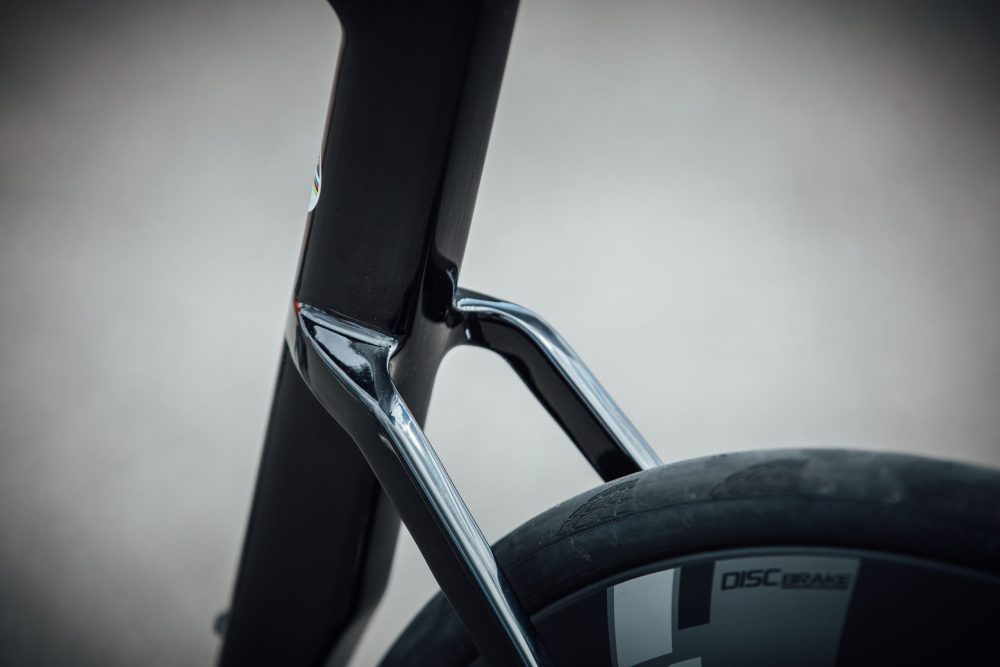
The numbers for the Reacto are pretty standard for an aggressive race oriented machine with a 73.5 degree head angle and 73 degree seat angle. It has a slightly shorter back end than some of its rivals such as the Trek Madone and our large frame size has a short 155mm head tube length yet long effective top tube to give it an even more race-like stance. Sizing it comes up as between a 56 and 58cm (so 57cm!) and fitted my 183cm frame incredibly well. Our sample came slammed with very little in the way of spacers but again this suited my usual ride position (typically 145mm drop from saddle to bar/795mm saddle height).
Components
Being an almost part for part replica of the Bahrain McLaren team bike the Team-E is bedecked in dream-build level kit. Whilst its £9000 price tag is clearly a massive investment, the spec sheet stacks up well against the competition.
Shimano's flagship Dura Ace Di2 drivetrain and hydraulic brakes provide almost flawless performance and reliability and really need very little extra said about it. Merida has specced the Team-E with the Dura Ace power meter chainset to add another level of intent. This reliably synced up and remained consistent in output when linked to my trusty Garmin 530. Interestingly Merida specced my large size test bike with 175mm cranks - I approve.
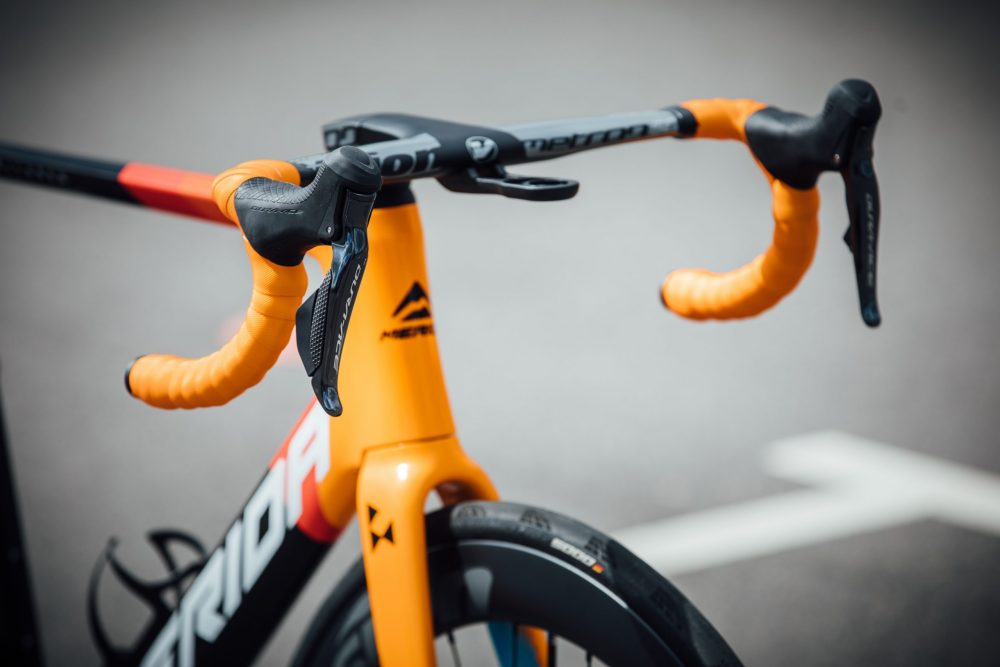
The wheels steal the show in terms of the spec list and are absolutely responsible for a chunk of the Reacto's show stopping speed and performance. Vision Metron 55, as you guessed, feature a 55mm deep carbon rim profile laced to Vision's own P.R.A. hubs. Despite appearances, the wheels are also competitively light for such a depth and the build quality provides no discernible flex that can rob that all important power. Continental GP5000 tyres (25mm) are some of our all-time favourites and endow even more speed and confidence into the package.
Vision also supply the integrated Metron 5D carbon handlebar and stem. It's a one-piece unit that keeps all cables internal for an ultra slippery front end. The 42cm width works well and the shaping and stem length suited me - although this is something to consider if you require a different width/setup.
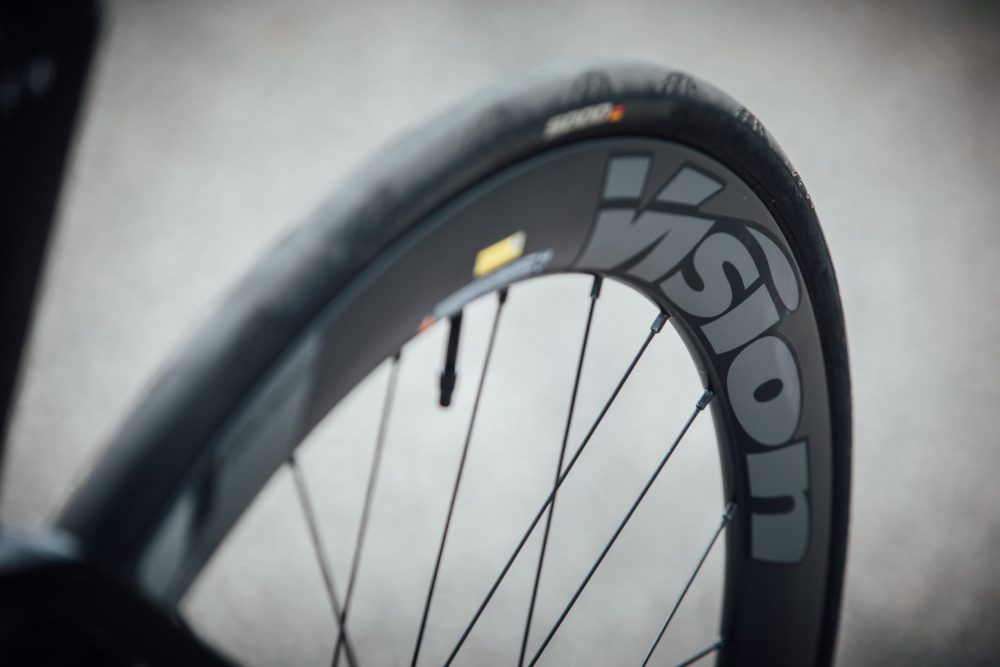
A pretty comfy Prologo saddle sits atop of Merida's proprietary carbon seatpost. This has a huge chunk cut out of it presumably to add a bit of compliance/flex and Merida has neatly added a rubber encased rear light to clean up the look. This is a decent addition, however it takes a single AAA battery rather than being USB rechargeable and as such ran out pretty quickly, leaving me with the hassle of trying to find a new battery.
The seatpost was also the source of my only real gripe with the Reacto as the rubber cap covering the seatclamp gubbins kept rising up the post during a ride. This was cured with a little tape but it was a tiny bit annoying.
The ride
Every once in a while you jump on board a bike that you can tell is something a bit special within the first pedal stroke. It's been quite a while since I had this feeling but the Reacto blew me away within the first few minutes. The sheer unadulterated speed and responsiveness of the machine is intoxicating and you can tell that every single ounce of effort put in is translated into brutal efficiency. But what is even more outstanding is how the Reacto maintains that speed with what seems like minimal effort.
With a power meter on board I was able to accurately gauge my effort and compare speeds with other similar bikes I have ridden and I can confirm that the Reacto seemed to deliver significantly faster speeds over segments when compared with other similar bikes. To put it even more simply I was achieving Strava KOMs and top tens on segments where I would normally struggle to be in the top 20 and average speeds were far higher on rides.
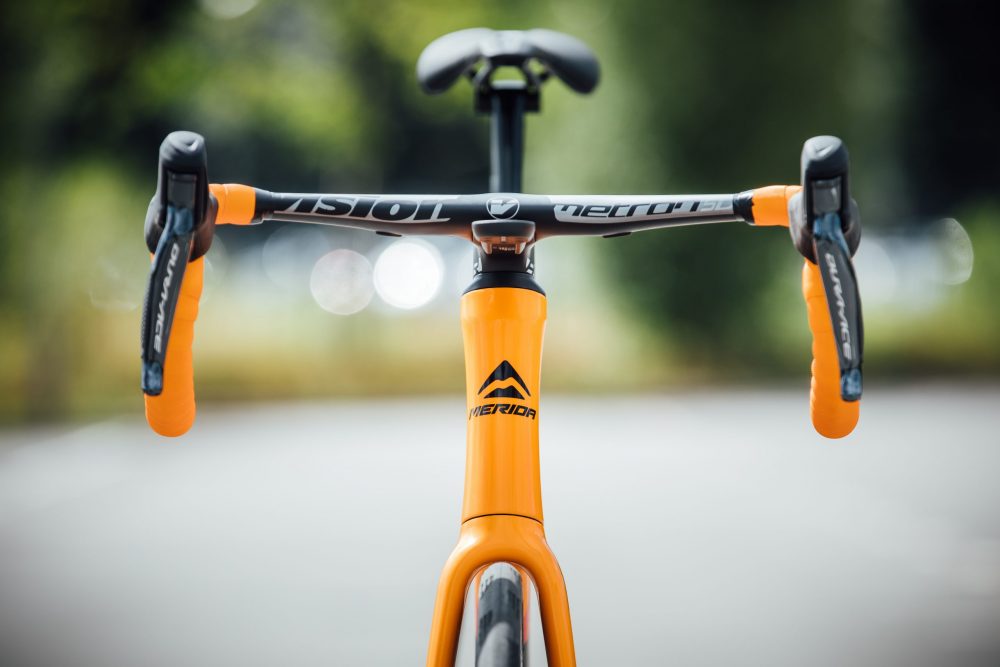
A lot of this is down to the narrow, aerodynamic profile of the bike and those superb deep Vision wheels - of course replicate this setup on quite a few bikes and your performance will certainly increase. But what sets the Reacto apart from the competition is the ride quality. Whilst it's never going to be described as an armchair plush ride, the Reacto delivers a level of comfort I haven't really felt from a dedicated aero machine. It really is a bike I would be happy to ride all day, and have done. And what makes it even better is you can up the tyre size considerably and increase the comfort even further.
Going back to the handling the Reacto straddles the line between snappy and twitchy to deliver a fully engaging ride. You really can stuff it into any corner as late as possible and at any speed and just feel it rail the turn. I think if I was to ride the Reacto as my main bike I might possibly reduce the front wheel depth as it can catch the wind and combine with the fast steering to give you a couple of eye-opening moments. Thankfully the slammed front end keeps the weight low over the front wheel so any little twitches can be controlled easily.
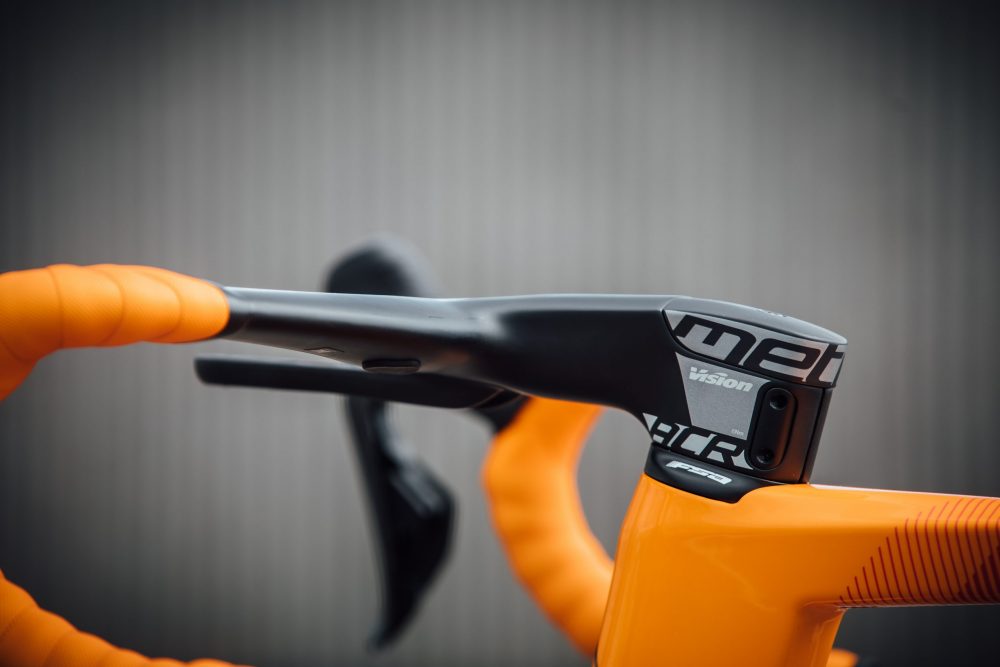
I was also impressed with its climbing prowess, well for an aero bike anyway. Its low overall mass, stiff stays and chunky bottom bracket help drill it up the climbs almost as well as a high-end climbing machine. It's never going to win out over a bike like a Giant TCR or Canyon Ultimate Evo but it will certainly keep you in the fight.
Probably the most telling takeaway I have with the Reacto is my riding buddies would hate it when I turned up on it, as they knew that any ride featuring this bike was going to be a smash-fest. The Recato is a bike that I would happily spend my own money on, and considering the competition for my affections, that says a lot.
James Bracey's career has seen him move from geography teacher, to MBR writer, to Cycling Weekly's senior tech writer and video presenter. He possesses an in-depth knowledge of bicycle mechanics, as well as bike fit and coaching qualifications. Bracey enjoys all manner of cycling, from road to gravel and mountain biking.
